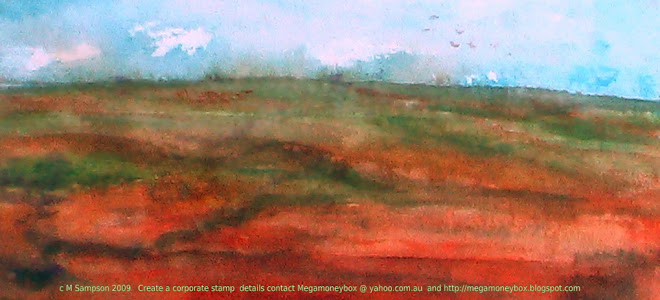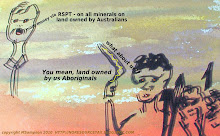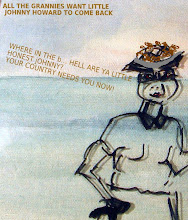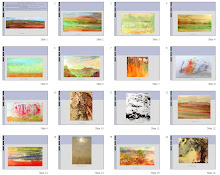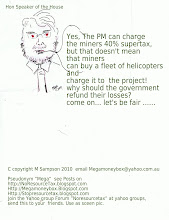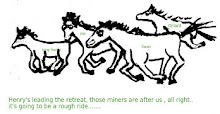GOOD ON YA ANDREW..kEEP IT UP.
What I would have encouraged him to say, was to quote the applicable section of the constitution.
We Quoted this in an early post. There will be argument whether royalties are a tax, and issues relating to what the governement eventually introduces. Here's the transcript below.
http://www.abc.net.au/7.30/content/2011/s3243809.htm?
Australian Broadcasting Corporation
Broadcast: 14/06/2011
Reporter: Chris Uhlmann
The mining magnate speaks with 7.30's Chris Uhlmann about a possible High Court challenge to the Government's mining tax.
Transcript
LEIGH SALES, PRESENTER: A touch under a year ago Julia Gillard said she'd sort three things before calling an election: border protection; climate change; and the mining tax.
Two of those have been daily ordeals ever since, but the government insists the mining tax is settled.
But one high profile miner is threatening a high court challenge over the tax.
The CEO of Fortescue Metals Groups, Andrew Forrest, was in Canberra today for meetings with the Government, Opposition and Independents.
He also spoke with 7.30's political editor, Chris Uhlmann.
CHRIS UHLMANN, REPORTER: Andrew Forrest, welcome.
ANDREW FORREST, FORTESCUE CEO: Thank you very much.
CHRIS UHLMANN: Will you take the Federal Government to the High Court over its mining tax?
ANDREW FORREST: If it's unconstitutional, if it's unfair, if it discriminates against Australian companies and favours multinationals, I think, on behalf of so many other companies, and really, all Australians, that's a precedent too dangerous not to challenge.
CHRIS UHLMANN: You must have tested that with your lawyers, what are the answers to those questions?
ANDREW FORREST: At this stage it looks highly unconstitutional, but clearly Canberra has different lawyers.
CHRIS UHLMANN: On what grounds though, because it's not unfair if it's just being better for one company than another?
ANDREW FORREST: Certainly. But if it discriminates against the States, if a State is taxed more heavily against another State, then that goes straight against the Constitution. Western Australia recently, as is of course their right, increased their royalties, we immediately have discrimination now.
CHRIS UHLMANN: Why didn’t you complain about that?
ANDREW FORREST: Well simply because it's their sovereign right. They own the metals in the grounds, we don't, it's been under the Constitution, owned by the people of the State. So they have every right to put it up.
But further, schools, hospitals, police, etc, are getting paid. We're not funding a great big dinosaur called the NBN (National Broadband Network), where we're going to waste a good $30 billion.
CHRIS UHLMANN: But that really has nothing to do with it, the Federal Government, does have a right to raise taxes, it raises company taxes, against you for example, so it can raise another tax ...
ANDREW FORREST: And it can do it again, and I'll happily pay it. And I'll happily pay this tax as well, no problem, provided of course that it doesn't let multinationals off and just penalise Australians.
CHRIS UHLMANN: Is it penalising Australians, or is it just penalising you because you have a different business model, which is built more on debt?
ANDREW FORREST: No, no, no, no, it, the great big companies have a huge, hundreds of billions of dollars between them, depreciation advantage, which means they can depreciate their assets by hundreds of billions of dollars before they pay this tax. No-one else has that, because they have that huge market value. It directly hits Australian developers.
CHRIS UHLMANN: If this tax is so bad, why has your share price gone up 80 per cent since it was announced?
ANDREW FORREST: I think you can put that down to the fact that we believed in the iron ore industry, we've continued to invest heavily, because we were told the Argus Review would be proper consultation, and that fundamental flaws, like an unfair tax which discriminates against Australians, would be taken into account.
That hasn't happened, that consultation was a farce.
CHRIS UHLMANN: But the people who buy your shares clearly see that there's going to be value in them in the future and they are going up, not down.
ANDREW FORREST: Well we would hope so, because without the multiplier effect of the mining industry the Australian economy would sadly be in a recession. It's the only industry which has a multiplier effect which is positive.
CHRIS UHLMANN: Because commodity prices are continuing to climb, and doesn't the Australian Government have a right, on behalf of the Australian people, to try and get as much of the profits as it can?
ANDREW FORREST: Well unfortunately commodity prices have been falling, I think, which is, you know...
CHRIS UHLMANN: Historically they are at enormous highs.
ANDREW FORREST: Commodity prices go up and down. Commodity prices right now are high on average, but they have fallen a good 25 per cent. That's a solid fall.
You can't put into a budget and budget out predictable cashflows on a tax where it goes up and down like a madman. It's just not a responsible tax to try and plug a budget hole with.
CHRIS UHLMANN: We're seeing 140 year Terms of Trade surge; doesn't the Australian Government have a right, on behalf of the Australian people, to try and cash in on that?
ANDREW FORREST: I think they have every right to. But why would they let off the multinationals and penalise Australians.
Let's get to the issue ...
CHRIS UHLMANN: They're not though, they're saying they can pay more tax, and surely you can pay more tax?
ANDREW FORREST: No, no. Why I'm protesting against this tax, and you heard me say it again, I'm happy to pay this tax, on the record, but, not if they let off the multinationals.
Why were the multinationals the only ones in the room? Why were only they protected from this tax? Why was this trick put into this tax? This pup sold to the Australian Government and they're now trying to sell it to the Australian people, the Australian people are going to see through that. It lets off the multinationals who were funding the advertising campaign against the Gillard Government, it let them off, they stopped that campaign. Now, they're penalising those who are the Australian developers.
CHRIS UHLMANN: But you agree, at the end of the day, those companies will be paying more tax?
ANDREW FORREST: They will pay a lot less profits, a lot less tax ...
CHRIS UHLMANN: But they'll pay more tax.
ANDREW FORREST: ... per dollar profit than what the Australian developer will, and I think that's terribly important. If they pay one cent more, as a multinational, and we pay $10 more, do you think that's fair?
This tax is without precedent, it's dangerous.
CHRIS UHLMANN: But that's not the order of magnitude we're talking about though is it?
ANDREW FORREST: But we are, we are. They have hundreds of billions of dollars, and I'm really glad you're zoning in on this.
Our view is, our fellow Australians have been sold a pup by this Government, they've given multinationals, who were funding the campaign against Gillard and Rudd, a huge tax break. But those who weren't, they're penalising. They're penalising Australians as opposed to multinationals.
CHRIS UHLMANN: Just to clarify this then, you're saying you're not against the tax, you're against the fact that you believe it gives a competitor a break?
ANDREW FORREST: What it does. It is so obvious, I'm surprised Ferguson, Gillard and Swan can't see it like the nose on their face. All I can assume is that they do, but because those three are so powerful they can advertise against the Government, they have let them off and they're penalising everyone else badly.
It is a tax which is designed by those three to limit badly their competition. Their competition is the Australian home-grown companies. That a Government could fall for that is unbelievable.
CHRIS UHLMANN: Are all your shareholders Australian home-grown?
ANDREW FORREST: Many are, and many aren't ...
CHRIS UHLMANN: And many aren't.
ANDREW FORREST: ...but we have 55,000 shareholders, of which 54,900 are Aussies.
CHRIS UHLMANN: Alright, but from the Australian Government's point of view can't you understand that in the end they are going to get more tax dollars out of those companies, and they're going to get more tax dollars out of you, at a time when commodity prices are high; that's a reasonable thing for them to do?
ANDREW FORREST: Absolutely. And let's do, and let's do it fairly. Let's have the great country of Australia levy taxes wherever it pleases.
But not introduce, the first time in Australia's federation history, a tax which really discriminates against Australians and helps multinationals who were funding a campaign against the Government. And the Government needed to look clever, very quickly, after the Prime Minister rolled the Foreign Minister. She needed to look very clever very quickly, so she announced a solution, which could only have been cooked up in a prior agreement, which was just to say 'give us a huge tax break and we'll support a new tax.'
CHRIS UHLMANN: Andrew Forrest, thank you.
ANDREW FORREST: Thank you very much.
Tuesday, June 14, 2011
Sunday, January 2, 2011
is Gillard having another go at the MRRT?
here's part of a comment on this ref page...
"steelerudd of coolie Posted at 12:47 PM Today
Angela Evans of Brisbane Posted at 11:59 AM Today Couple of points. The GST arrangements are a Commonwealth tax and a simple agreement to distribute the proceeds to the states according to the HFE relativities. The states have no right to the revenue - it is a gift from the Commonwealth which the Commonwealth can alter by simply changing the intergovernmental agreement and the GST tax legislation. No ifs, buts or maybes - Barnett is completely wrong and will lose his 30% once the legislation is passed and Gillard tires of his grandstanding. Wrong on so many points that I can,t even be bothered to point out your non factual parts , as for Joolya / Swan getting any thing past their master (B.Brown ) I,d Like To See That. MS So that's how they will get around the constitutional challenge? its a gift not a right?
here's the article
A NEW battle over the mineral resources rent tax is looming as Western Australia and Queensland push for the regional infrastructure fund promised as a sweetener to be excluded from the system for carving up more than $50 billion in GST receipts.
West Australian bureaucrats fear the state will be short-changed and have insisted the fund be quarantined from the Commonwealth Grants Commission process that siphons GST and other revenue from the rich states to the poorer ones.
The Queensland Labor government also insists that its share of the new fund must not be reduced because of the GST formula.
When Wayne Swan announced the Regional Infrastructure Fund -- to be funded with the proceeds of the then resource super-profits tax -- he said the "lion's share" should go to the mining states of WA and Queensland to fund rail, roads, ports and other crucial infrastructure.
But putting the cash -- an initial $700 million and up to $6bn over the next decade -- into the grants commission process for allocating the GST pool could reduce the amount received by WA and Queensland in favour of poorer states such as South Australia and Tasmania.
Start of sidebar. Skip to end of sidebar.
Related Coverage
EDITORIAL: Tax reform must head the agenda
End of sidebar. Return to start of sidebar.
The push threatens to add to the row between the Gillard government and the states over the MRRT, which replaced the RSPT in July. Canberra is already threatening to penalise states that increase their mining royalties in the future after a damaging stoush over whether miners would get a credit against federal taxes for hikes in state royalties.
West Australian Premier Colin Barnett said he remained vehemently opposed to the MRRT and the Regional Infrastructure Fund "doesn't win over our support for it at all".
"Julia Gillard keeps on talking about $2bn for Western Australia. I think it's over 10 years. It's not a large amount of money. You're talking about $200m a year. That won't build much."
While the Premier is focused on scuttling the MRRT, the WA Department of Treasury and Finance has pushed for the money to be quarantined from the grants commission process. It has outlined its position in a paper handed to a Senate committee inquiring into the mining tax.
Because the grants commission's formula for distributing the GST works by redistributing revenue windfalls -- including some federal payments -- between the states, the mining states stand to be punished if the infrastructure fund is not excluded from that process.
Queensland's Treasurer, Andrew Fraser, said it was crucial to ensure that his state was "not short-changed" because of "any unintended consequence" of the grants commission formula.
"We believe the federal government will honour its commitment to ensure the states that contribute to the mining boom get the lion's share of the infrastructure funds," Mr Fraser said. "This fund has been dedicated to meeting the infrastructure task in mining states and we won't accept moves by other states to claw back the funds."
WA is already refusing to hand over a third of the state's GST as part of the federal health takeover and new Victorian Premier, Ted Baillieu, has also threatened to resist the deal. Mr Barnett said the commonwealth could not "unilaterally, or even with majority state support, change the GST formulas".
As well as inflaming federal-state tensions, the stance being taken by the resource-rich states over the treatment of the infrastructure fund is reviving bickering between the states over the GST carve-up.
NSW Treasurer Eric Roozendaal hit back at WA and Queensland, accusing them of acting like the "Bonnie and Clyde of the Australian federation". "Enough is enough. It is time that the developing economies of Western Australia and Queensland were held to account for squandering the resources boom," he said.
While there was a strong case to help small states like the Northern Territory that needed to provide services to isolated Aboriginal communities, NSW had cross-subsidised WA and Queensland to the tune of $1bn over the past 10 years, he said.
But Mr Fraser said the non-mining states already reaped a "huge benefit" from royalties redistributed by the grants commission. While Canberra and the states agreed to the process for distributing GST in an inter-governmental agreement, the commonwealth has the scope to decide matters like quarantining of payments.
The government has not yet provided the terms of reference to the grants commission for its 2011 review of the distribution of GST money. Mr Swan's office said the government would work with the states and territories on the arrangements for the distribution of the Regional Infrastructure Fund. If federal payments are not specifically quarantined from the GST carve-up by the commonwealth, the grants commission typically decides whether they should be included. For example, if the money is paid to a third party and it has no impact on a state's budgetary capacity, it could decide to exclude it.
ref http://www.theaustralian.com.au/national-affairs/states-flag-new-mining-tax-row/story-fn59niix-1225980692715?referrer=email&source=Punch_nl&emcmp=Punch&emchn=Newsletter&emlist=Member
ref article http://www.theaustralian.com.au/national-affairs/states-flag-new-mining-tax-row/story-fn59niix-1225980692715?referrer=email&source=Punch_nl&emcmp=Punch&emchn=Newsletter&emlist=Member
"steelerudd of coolie Posted at 12:47 PM Today
Angela Evans of Brisbane Posted at 11:59 AM Today Couple of points. The GST arrangements are a Commonwealth tax and a simple agreement to distribute the proceeds to the states according to the HFE relativities. The states have no right to the revenue - it is a gift from the Commonwealth which the Commonwealth can alter by simply changing the intergovernmental agreement and the GST tax legislation. No ifs, buts or maybes - Barnett is completely wrong and will lose his 30% once the legislation is passed and Gillard tires of his grandstanding. Wrong on so many points that I can,t even be bothered to point out your non factual parts , as for Joolya / Swan getting any thing past their master (B.Brown ) I,d Like To See That. MS So that's how they will get around the constitutional challenge? its a gift not a right?
here's the article
A NEW battle over the mineral resources rent tax is looming as Western Australia and Queensland push for the regional infrastructure fund promised as a sweetener to be excluded from the system for carving up more than $50 billion in GST receipts.
West Australian bureaucrats fear the state will be short-changed and have insisted the fund be quarantined from the Commonwealth Grants Commission process that siphons GST and other revenue from the rich states to the poorer ones.
The Queensland Labor government also insists that its share of the new fund must not be reduced because of the GST formula.
When Wayne Swan announced the Regional Infrastructure Fund -- to be funded with the proceeds of the then resource super-profits tax -- he said the "lion's share" should go to the mining states of WA and Queensland to fund rail, roads, ports and other crucial infrastructure.
But putting the cash -- an initial $700 million and up to $6bn over the next decade -- into the grants commission process for allocating the GST pool could reduce the amount received by WA and Queensland in favour of poorer states such as South Australia and Tasmania.
Start of sidebar. Skip to end of sidebar.
Related Coverage
EDITORIAL: Tax reform must head the agenda
End of sidebar. Return to start of sidebar.
The push threatens to add to the row between the Gillard government and the states over the MRRT, which replaced the RSPT in July. Canberra is already threatening to penalise states that increase their mining royalties in the future after a damaging stoush over whether miners would get a credit against federal taxes for hikes in state royalties.
West Australian Premier Colin Barnett said he remained vehemently opposed to the MRRT and the Regional Infrastructure Fund "doesn't win over our support for it at all".
"Julia Gillard keeps on talking about $2bn for Western Australia. I think it's over 10 years. It's not a large amount of money. You're talking about $200m a year. That won't build much."
While the Premier is focused on scuttling the MRRT, the WA Department of Treasury and Finance has pushed for the money to be quarantined from the grants commission process. It has outlined its position in a paper handed to a Senate committee inquiring into the mining tax.
Because the grants commission's formula for distributing the GST works by redistributing revenue windfalls -- including some federal payments -- between the states, the mining states stand to be punished if the infrastructure fund is not excluded from that process.
Queensland's Treasurer, Andrew Fraser, said it was crucial to ensure that his state was "not short-changed" because of "any unintended consequence" of the grants commission formula.
"We believe the federal government will honour its commitment to ensure the states that contribute to the mining boom get the lion's share of the infrastructure funds," Mr Fraser said. "This fund has been dedicated to meeting the infrastructure task in mining states and we won't accept moves by other states to claw back the funds."
WA is already refusing to hand over a third of the state's GST as part of the federal health takeover and new Victorian Premier, Ted Baillieu, has also threatened to resist the deal. Mr Barnett said the commonwealth could not "unilaterally, or even with majority state support, change the GST formulas".
As well as inflaming federal-state tensions, the stance being taken by the resource-rich states over the treatment of the infrastructure fund is reviving bickering between the states over the GST carve-up.
NSW Treasurer Eric Roozendaal hit back at WA and Queensland, accusing them of acting like the "Bonnie and Clyde of the Australian federation". "Enough is enough. It is time that the developing economies of Western Australia and Queensland were held to account for squandering the resources boom," he said.
While there was a strong case to help small states like the Northern Territory that needed to provide services to isolated Aboriginal communities, NSW had cross-subsidised WA and Queensland to the tune of $1bn over the past 10 years, he said.
But Mr Fraser said the non-mining states already reaped a "huge benefit" from royalties redistributed by the grants commission. While Canberra and the states agreed to the process for distributing GST in an inter-governmental agreement, the commonwealth has the scope to decide matters like quarantining of payments.
The government has not yet provided the terms of reference to the grants commission for its 2011 review of the distribution of GST money. Mr Swan's office said the government would work with the states and territories on the arrangements for the distribution of the Regional Infrastructure Fund. If federal payments are not specifically quarantined from the GST carve-up by the commonwealth, the grants commission typically decides whether they should be included. For example, if the money is paid to a third party and it has no impact on a state's budgetary capacity, it could decide to exclude it.
ref http://www.theaustralian.com.au/national-affairs/states-flag-new-mining-tax-row/story-fn59niix-1225980692715?referrer=email&source=Punch_nl&emcmp=Punch&emchn=Newsletter&emlist=Member
ref article http://www.theaustralian.com.au/national-affairs/states-flag-new-mining-tax-row/story-fn59niix-1225980692715?referrer=email&source=Punch_nl&emcmp=Punch&emchn=Newsletter&emlist=Member
Subscribe to:
Comments (Atom)
